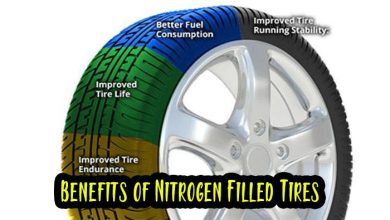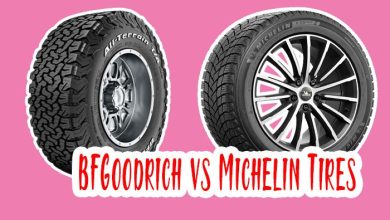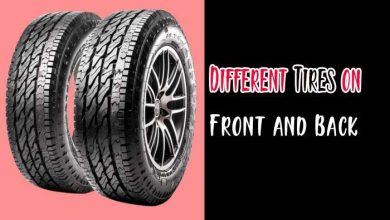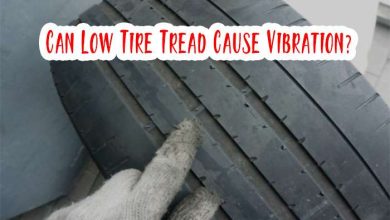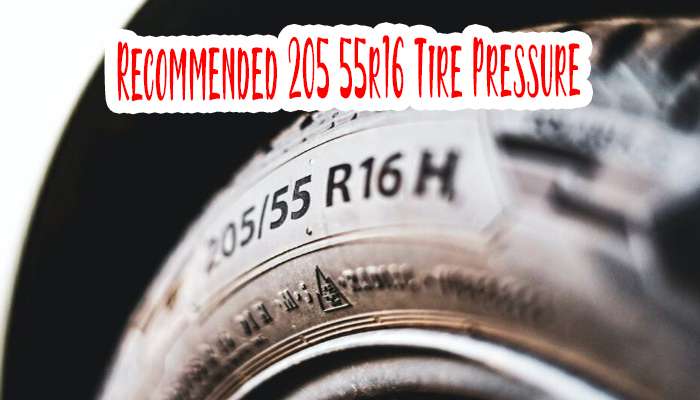Are All Season Tires Good In Snow? An Expert’s Guide
Are all-season tires good in snow? It’s a common question for car owners facing the unpredictability of winter weather.
As a tire expert with a deep understanding of tires and rims, I’m here to provide you with a comprehensive guide.
We’ll explore the world of all-season tires, their effectiveness in snowy conditions, and how to make the right choice for your winter driving needs.
Read Also: Are All Terrain Tires Good For Snow?
All-season tires are not the best choice for driving in snow. They are designed for a balance of performance in all seasons, but they do not have the same level of traction as snow tires in cold weather.
All-Season Tires Explained
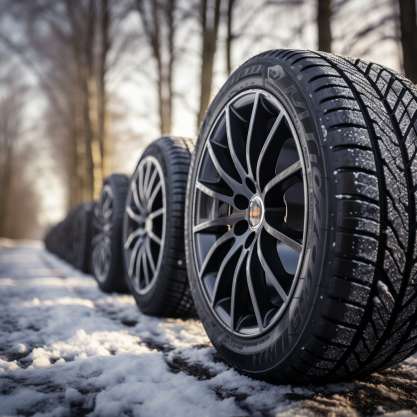
Before we dive into the specifics of their performance in snow, let’s understand what all-season tires are.
These tires are designed to balance performance in various weather conditions, from hot summer days to cold, wet, and mildly snowy winter days.
They are a versatile choice for many drivers, thanks to their ability to handle various temperatures and road conditions.
All-season tires are often the default choice for many vehicles. They are constructed with a rubber compound that provides a good grip on dry and wet surfaces.
Additionally, they have treads that are not too aggressive, ensuring a quiet and comfortable ride most of the year.
Related Post: All Season VS Mud And Snow Tires
Are All Season Tires Good in Snow?
Let’s get to the heart of the matter – how well do all-season tires perform in snow? Like many things in life, the answer is not black and white.
All-season tires can handle light to moderate snowfall but are less effective than dedicated snow tires in severe winter conditions. The key to their performance lies in the rubber compound and tread pattern.
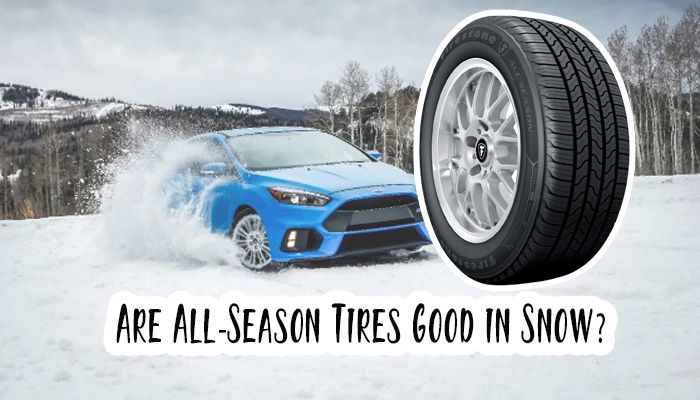
While they are designed to be versatile, their rubber compound tends to harden in freezing temperatures, reducing their ability to grip the road effectively.
This can lead to longer stopping distances and decreased traction in icy or snowy conditions.
However, all-season tires are only partially proper in the snow. Their performance largely depends on your location and the typical weather conditions you face.
All-season tires may be adequate if you live in an area with mild winters and occasional snow. But if you regularly encounter heavy snow and icy roads.
Pros and Cons of All-Season Tires in Snow

Let’s break down the advantages and disadvantages of using all-season tires in snowy conditions to help you make an informed decision:
Pros
- Versatility: All-season tires can handle a wide range of conditions, making them suitable for areas with mild winters.
- Convenience: As with winter and summer tires, you don’t need to change your tires twice a year. All-season tires provide year-round reliability.
- Cost-Efficiency: They can be more cost-effective than buying two sets of tires, especially if you don’t face extreme winter conditions.
Cons
- Limited Snow Performance: All-season tires have limitations in heavy snow and ice, leading to compromised traction and longer braking distances.
- Less Grip: They may provide a different grip on snowy or icy roads than dedicated snow tires, potentially compromising your safety.
- Shorter Lifespan: Using all-season tires in harsh winter conditions can wear them down faster, reducing lifespan.
All-Season vs. Snow Tires

To understand the difference between all-season and snow tires, let’s compare their key features:
All-Season Tires
- Versatility: Suitable for a wide range of conditions.
- Tread Pattern: Less aggressive tread for a quiet and comfortable ride.
- Rubber Compound: Hardens in freezing temperatures, reducing snow traction.
- Performance: Moderate snow performance, better in mild winters.
Snow Tires
- Dedicated Winter Performance: Explicitly designed for snowy and icy conditions.
- Aggressive Tread Pattern: Provides excellent grip on snow and ice.
- Soft Rubber Compound: Maintains flexibility in cold temperatures for superior snow traction.
- Performance: Exceptional snow and ice performance, but less suitable for other seasons.
Read more: Benefits of Nitrogen Filled Tires
| Aspect | All-Season Tires | Not ideal for year-round use due to specialized tread patterns and rubber compounds. |
|---|---|---|
| Versatility | Versatile, designed for a wide range of conditions. | Specifically designed for snow and ice. |
| Snow Performance | Decent performance in light snow and slush. | Superior traction and braking in extreme winter conditions. |
| Suitable Conditions | Suitable for areas with milder winters. | Not ideal for year-round use due to specialized tread pattern and rubber compounds. |
| Convenience | Convenient year-round use with no need for seasonal changes. | Requires seasonal swapping, which can be inconvenient. |
| Tread Pattern | Tread patterns are designed for various conditions, compromising specialized snow traction. | Unique tread patterns optimized for snow and ice traction. |
| Braking Distance (Snow) | Longer stopping distances on snow and ice. | Shorter stopping distances on snow and ice. |
| Handling (Snow/Ice) | Reduced handling performance in severe winter conditions. | Excellent handling and control in snowy and icy conditions. |
How to Choose the Right Tires for Snow?

If you’ve decided that all-season tires are the way to go, here are some tips to help you choose the right ones for snowy conditions:
- Look for the Three-Peak Mountain Snowflake Symbol: This symbol indicates that the tire meets the industry standard for winter performance. Tires with this symbol are more likely to perform well in the snow.
- Check for Sipes: Tires with additional sipes on the tread are designed for better snow and ice traction. Look for these features if you live in an area with regular snowfall.
- Consider All-Weather Tires: As mentioned earlier, all-weather tires are an improved version of all-season tires when it comes to winter performance. They are a good compromise if you want year-round versatility with better snow capabilities.
- Consult Your Local Tire Expert: It’s always a good idea to consult a local tire expert who understands the specific weather conditions in your area. They can provide tailored recommendations based on your needs.
- Invest in a Quality Set: Remember, your tires are a critical part of your vehicle’s safety. Investing in a high-quality set of all-season tires is worth it, especially if you frequently encounter snowy roads.
Conclusion
In the eternal debate of “Are all-season tires good in snow,” the answer is both yes and no. All-season tires are a versatile choice, but their snow performance has limitations. The decision ultimately rests on your specific circumstances and the winter weather conditions you face.
If you live in an area with mild winters and occasional snowfall, all-season tires may suffice. However, if you often battle heavy snow and icy roads, investing in a set of dedicated snow tires is the safer choice.
Now it’s your turn! Share your thoughts and experiences with all-season tires in the snow. Have you found them to be effective, or do you prefer dedicated snow tires? Let’s continue the conversation in the comments below.
Reference Link
Glossary
- All-Season Tires: Tires are designed to perform well in a variety of weather conditions, from summer heat to mild winter conditions.
- Dedicated Snow Tires: Tires are specifically designed to excel in snowy and icy conditions, providing superior grip and safety.
- Sipes: Slits on the tire tread that improve traction on snow and ice.
- Three-Peak Mountain Snowflake Symbol: An industry standard symbol indicating that a tire meets the criteria for winter performance.
